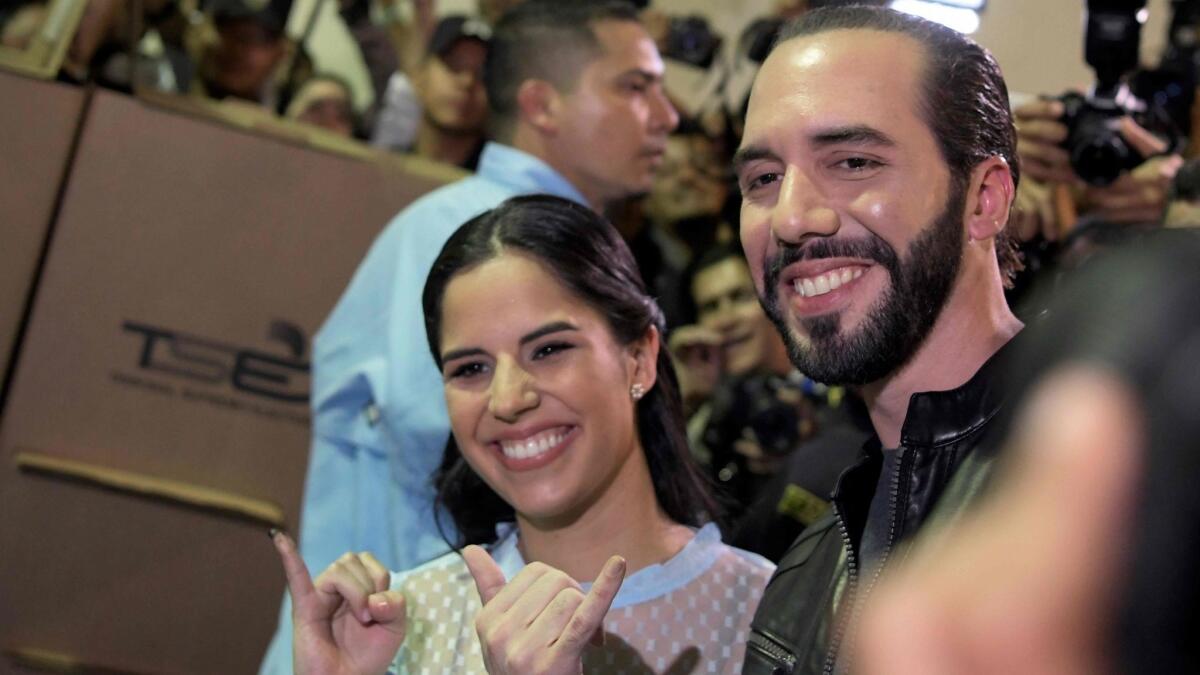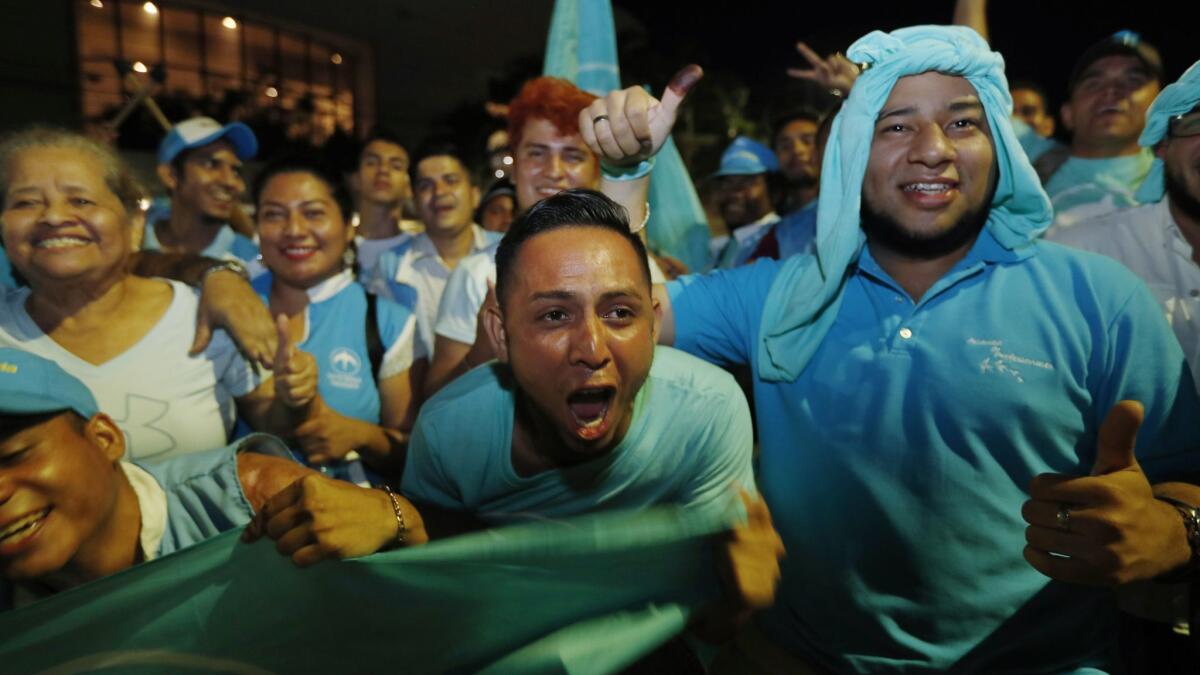Social media star from far-right party declares victory in El Salvador’s presidential election

- Share via
Reporting from San Salvador — A 37-year-old social media star who ran as an outsider and vowed to combat corruption declared victory in El Salvador’s presidential election Sunday after preliminary results showed him with a majority of the vote.
With 80% of ballots counted, Nayib Bukele, the former mayor of San Salvador, was ahead with 54% of the vote. In second place was business tycoon Carlos Calleja, with 32%, according to El Salvador election officials.
“At this time we can announce with complete certainty that we have won the presidency of El Salvador in the first round,” Bukele told his supporters.
Bukele needed to win more than 50% of the vote to be declared the winner and avoid a runoff.
A Bukele victory would be a major blow to El Salvador’s political establishment, which has been dominated for two decades by just two parties.
Candidates from either the right-wing Arena party or the FMLN, the party of El Salvador’s former leftist guerrillas, have won every presidential election since the 1992 peace accords ended the country’s decades-long civil war.
Bukele began his career in politics with the FMLN but ran for president with the Great Alliance for National Unity, known as GANA, a small party on the far right.
His promise to form an anti-corruption commission in El Salvador helped win over disaffected voters from Arena and the FMLN, which have both been tarnished by accusations of graft.

“The other political parties have done such a bad job that they don’t deserve to win,” said airport worker Juan Canales, 50, who came with his daughters and wife to vote at a San Salvador convention center Sunday afternoon. “People are poorer every day for the things they have done.”
Canales had been a die-hard supporter of Arena for years, but this time cast his ballot for Bukele.
“It strikes me as the moment to try another option,” he said.
Geoff Thale, a researcher at a U.S.-based think tank, the Washington Office on Latin America, said Bukele’s rise is part of a global rejection of the status quo.
“People are exhausted by the traditional political systems,” Thale said. But he added that it is unclear what exactly Bukele stands for beyond a rejection of the establishment.
As a candidate, Bukele ducked interviews and sat out public debates, relying instead on Twitter to communicate directly with his large following. He professes to have no political ideology, a significant shift in a country that has long been sharply divided among ideological lines.
“If you ask what is his program, it’s very hard to know,” Thale said.
The election pitted Bukele and Calleja, Arena’s candidate, against Hugo Martinez, a former congressman and foreign minister with the FMLN. Martinez was in third place, with 14%.
Incumbent President Salvador Sanchez Ceren, of the FMLN, is deeply unpopular and has been viewed as ineffective and removed from everyday Salvadorans. He is not eligible to run for a second consecutive term.
Beyond corruption — several former presidents have been accused of or convicted of embezzlement — the election was dominated by debate over the economy and security.
Walter Guzman, 28, said he had also voted for Bukele after years of supporting other parties.
His top concern, he said, was security. While El Salvador’s homicide rate has fallen in recent years, the nation is still dominated by violent gangs that run extortion rackets.
“One can’t go out in the streets without risking running into a gang member,” Guzman said.
One in four Salvadorans live outside of El Salvador, the vast majority in the United States.
Special correspondent Green reported from San Salvador and Times staff writer Linthicum from Mexico City.
More to Read
Sign up for Essential California
The most important California stories and recommendations in your inbox every morning.
You may occasionally receive promotional content from the Los Angeles Times.














